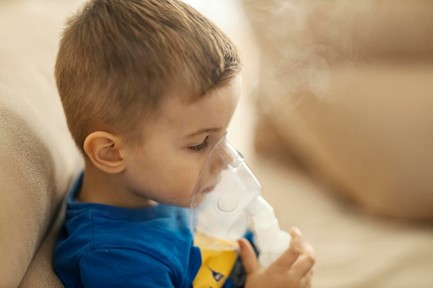A common respiratory condition affecting children of all ages. It occurs when the bronchial tubes, responsible for carrying air to the lungs, become inflamed, and irritated. In this blog, we will explore the causes, symptoms, diagnosis, treatment, and prevention of bronchitis in children, aiming to provide comprehensive understanding and guidance for managing this condition effectively.
Causes of Bronchitis in Children
Bronchitis in children is primarily caused by viral infections, with the rhinovirus (common cold virus) being the most frequent culprit. Other viruses like respiratory syncytial virus (RSV) and influenza virus can also lead to bronchitis. Bacterial infections occasionally cause bronchitis but are less common.
Symptoms of Bronchitis in Children
- Cough: Persistent cough, initially dry and later producing phlegm or mucus.
- Chest congestion: Discomfort and difficulty breathing due to chest congestion.
- Wheezing: High-pitched whistling sound during breathing caused by narrowed airways.
- Fatigue and irritability: General feelings of tiredness, irritability, and malaise.
Diagnosing Bronchitis in Children
If your child displays symptoms of bronchitis, seek medical consultation for accurate diagnosis. Doctor will perform a physical examination and inquire about symptoms. Additional tests such as chest X-ray or mucus sample analysis may be recommended to rule out other causes or bacterial infections.
Treatment and Management
- Rest and hydration: Ensure adequate rest and fluid intake to maintain hydration.
- Medications: Consult a doctor before administering over-the-counter cough suppressants or pain relievers.
- Inhalation therapy: Prescribed to open airways and reduce inflammation in severe cases.
- Humidifier use: Using a cool mist humidifier can help soothe airways and relieve congestion.
Preventing Bronchitis in Children
Prevention is key to reducing the risk of bronchitis:
- Handwashing: Encourage regular handwashing, especially before meals and after contact with sick individuals.
- Hygiene practices: Teach proper cough and sneeze etiquette, such as covering mouth and nose with a tissue or elbow.
- Vaccination: Ensure your child receives recommended vaccines, including the influenza vaccine.
- Avoidance of smoke: Keep children away from tobacco smoke to minimize respiratory symptoms.
Bronchitis can be a challenging for children, but with proper care and management, most cases can be effectively treated at home. By understanding and implementing preventive measures, parents can promote their child’s respiratory health and seek timely medical advice when necessary. Working closely with doctor ensures tailored treatment plans for optimal recovery and comfort for children affected by bronchitis.


